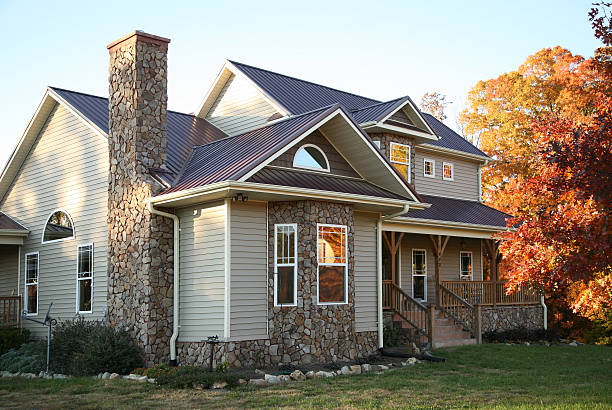How to Choose a Trustworthy Roofing Contractor: Tips for Homeowners
Choosing a roofing contractor is one of the most important decisions a homeowner will make when it comes to roof repair or replacement. A good roofing contractor ensures that the job is done correctly, safely, and efficiently, while a bad one can lead to costly mistakes, delays, and even damage to your home. With so many contractors out there, how do you make sure you choose the right one? This guide offers valuable tips to help you select a trustworthy roofing contractor for your home.
Do Your Research
Before hiring any roofing contractor, it’s essential to do some research. Not all contractors are created equal, and not every one will meet your needs. Start by searching for contractors in your area and checking their reputation. You can do this by:
- Reading online reviews: Websites like Google, Yelp, and Angie’s List are a good place to start. Look for reviews that give specific details about the contractor’s work quality, professionalism, and customer service.
- Asking for recommendations: Ask friends, family, and neighbors if they have any experience with roofing contractors. Word-of-mouth referrals can lead you to trusted contractors who have worked with people you know.
- Checking ratings with the Better Business Bureau (BBB): The BBB provides ratings for businesses, including roofing contractors. You can check whether the contractor has unresolved complaints or a history of unethical practices.
Verify Credentials
A reliable roofing contractor should be licensed, insured, and have a solid reputation within the industry. Verifying these credentials will give you peace of mind that the contractor is legally authorized to do the work and that you are protected in case of accidents or issues.
Licensing
Most states require roofing contractors to have a valid license to operate. Ensure the contractor is licensed in your state and check that the license is up-to-date.
Insurance
Make sure the contractor has both liability insurance and worker’s compensation insurance. Liability insurance protects your property in case of accidents, while worker’s compensation insurance ensures that the contractor’s workers are covered in case of injury on your property.
Bonding
Some contractors are bonded, which means they have a guarantee from a bonding company to complete the work as agreed. This provides additional protection for homeowners if the contractor fails to fulfill the contract.
Look for Local Experience
Choosing a contractor with local experience offers many advantages. A local contractor is more likely to be familiar with your area’s specific weather conditions, building codes, and local suppliers. They are also more likely to care about their reputation within the community and be available for future repairs or follow-up work.
Before making your decision, check how long the roofing contractor has been in business and whether they have completed similar projects in your area. A company with a long-standing reputation is often more reliable and better equipped to handle your project.
Get Multiple Estimates
It’s always a good idea to get estimates from at least three roofing contractors before making a decision. While price should not be the only deciding factor, obtaining multiple quotes helps you gauge whether the pricing is reasonable for the scope of work involved. Be wary of estimates that are much lower or higher than the average for your area.
When comparing estimates, make sure they are based on the same specifications. Ask contractors to provide a detailed breakdown of costs, including materials, labor, permits, and any potential additional fees. This will help you understand what you’re paying for and avoid surprises.
Check References and Portfolio
A trustworthy contractor should be able to provide references from previous clients who can speak to the quality of their work. When checking references, ask about the overall experience, including whether the job was completed on time, within budget, and to the homeowner’s satisfaction.
Additionally, ask the contractor to provide a portfolio of their recent roofing projects. This will give you a visual sense of the quality of their work. If possible, visit a completed project in person to see the roof’s condition.
Avoid Storm Chasers or Door-to-Door Salesmen
Storm chasers are contractors who follow severe weather events, offering “discounted” roof repairs or replacements to homeowners in areas affected by hail, wind, or other damage. These contractors often do subpar work, overcharge for services, or disappear after the job is done.
It’s best to avoid contractors who come to your door unsolicited. Reputable contractors typically don’t engage in door-to-door solicitation, especially for storm-related damage. If you suspect a contractor might be a storm chaser, do your due diligence to verify their credentials and check their reputation.
Communication is Key
A trustworthy roofing contractor should be responsive and communicative from the beginning. Pay attention to how well they communicate with you throughout the process. Are they answering your questions promptly? Are they explaining the details of the job clearly? Do they provide a written contract with all the terms outlined?
Clear communication is essential to avoid misunderstandings and ensure that the work is done according to your expectations. A contractor who is easy to reach, takes the time to explain the process, and listens to your concerns is more likely to do a better job.
Read the Contract Carefully
Once you’ve chosen a contractor, make sure to sign a detailed, written contract. The contract should outline:
- The scope of the project
- The materials to be used
- The estimated timeline for completion
- Payment terms (including a deposit and final payment)
- Any warranties or guarantees on the work and materials
Don’t sign anything until you are confident that all aspects of the job are covered and you fully understand the terms. A well-written contract is crucial for protecting both you and the contractor.
Beware of Red Flags
While most roofing contractors are honest and professional, there are always a few who might try to cut corners. Be on the lookout for red flags that indicate a contractor may not be trustworthy:
- Lack of written contract: If the contractor refuses to provide a written agreement, it’s a major red flag.
- Asking for full payment upfront: It’s common to pay a deposit, but beware of contractors asking for the full payment before the job is completed.
- No physical address: If the contractor doesn’t have a permanent physical address, it could indicate they are not a legitimate business.
- Unwillingness to provide references: A reputable contractor should have no problem providing references from previous clients.
Trust Your Instincts
Lastly, trust your instincts. If something doesn’t feel right or if the contractor seems overly pushy, unprofessional, or evasive, it’s better to look elsewhere. A reliable roofing contractor should make you feel confident in their abilities and reassure you that the work will be done properly.
Conclusion
Choosing a trustworthy roofing contractor is an important step in ensuring that your roofing project goes smoothly and is completed to a high standard. By doing your research, verifying credentials, checking references, and getting multiple estimates, you can make an informed decision. Communication is key, so be sure to work with a contractor who is transparent, responsive, and willing to answer all of your questions.
Taking the time to choose the right roofing contractor will not only save you time and money but will also give you peace of mind knowing that your roof is in good hands.





